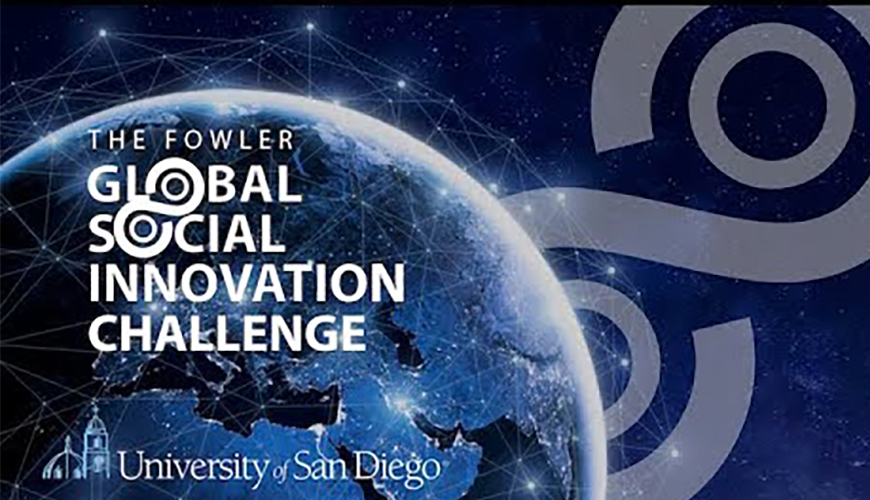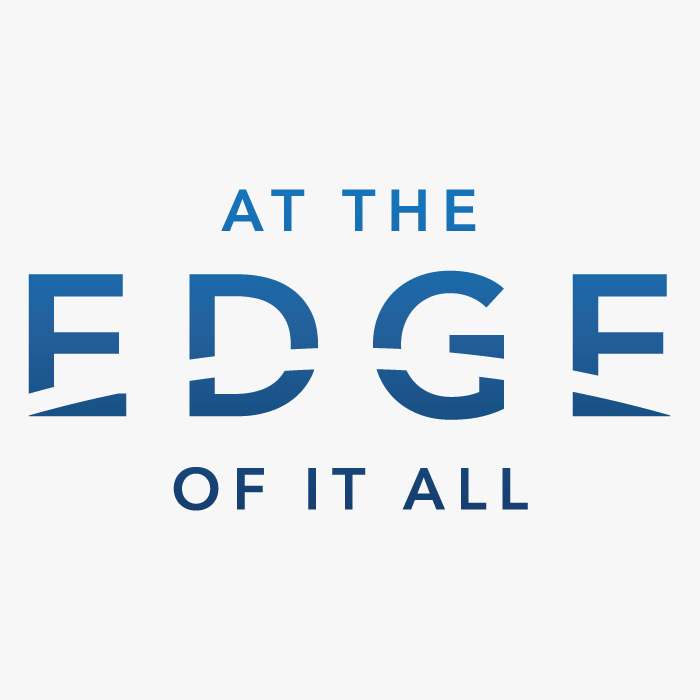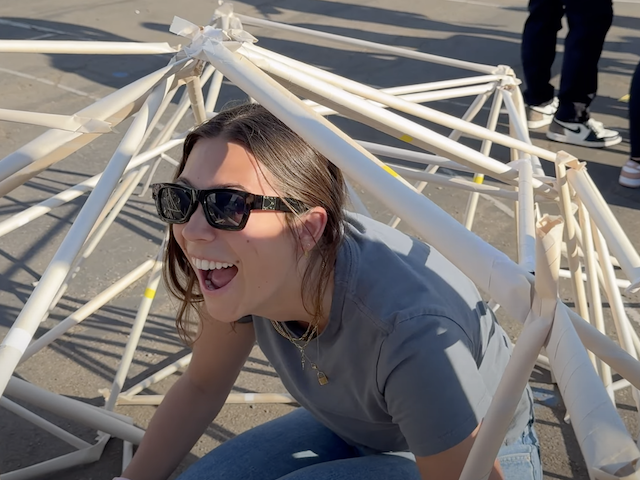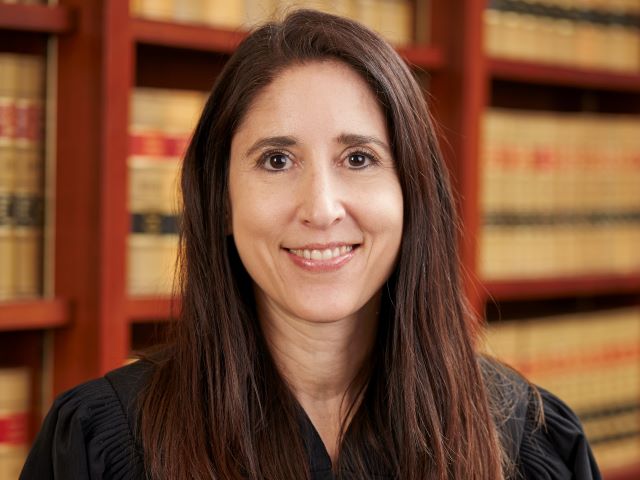Five San Diego Teams Among 16 Finalists for Saturday's Fowler Global Social Innovation Challenge
 On June 13, the Fowler Global Social Innovation Challenge will have 16 finalists pitch ideas virtually vying for $58,000 in seed funding and prizes. The 5 p.m. show is live on YouTube. Register now!
On June 13, the Fowler Global Social Innovation Challenge will have 16 finalists pitch ideas virtually vying for $58,000 in seed funding and prizes. The 5 p.m. show is live on YouTube. Register now!Center for Peace and Commerce Director Silvia Mah's excitement was loud and clear during a video chat during a break this week from seeing more than 50 entrepreneurial teams from 28 universities, 15 countries and nine different time zones pitch innovative ideas.
"They all bring me hope," she said. "Seeing these young minds creating new solutions to make the world better is just so inspiring."
That is the beauty of the Fowler Global Social Innovation Challenge. It's the magic reason why Mah, CPC coordinator Juliet Zimmer and their entire team from the Kroc School and School of Business who assist the CPC with this annual event do what they do.
And now, as the Global Finals are presented live, virtually, at 5 p.m. on Saturday, June 13 on YouTube (RSVP now to gain access), Mah is very happy to announce a pivot. Originally scheduled to have 12 finalist teams, Mah said it has shifted to 16 teams shortlisted for finals consideration. Teams gave their final pitches to judges on Thursday and finish up this morning.
The 16-team field has 10 from United States universities, but the international presence includes India, South Korea, Venezuela, Spain, Colombia and Mexico. There’s good news for locals as both University of San Diego teams — Sunlight U and Xatalyze — advanced. The San Diego area, actually, looks good with two UC San Diego teams and one from San Diego State still in the hunt. The remaining U.S. teams represent universities in Texas, Minnesota and North Carolina.
Here are the 16 team names and locations: Arboretyx, University of Texas-Austin; BIOMILQ, Duke University; BraillEazy, University of St. Thomas (Minn.); Brilliant Biome, UC San Diego; Creceras, University of Texas-Austin; Dr. Nanoxa, S.P. Jain Institute of Management and Research, India; Hanguler, Ewha Women's University, South Korea; Leather Heart, Instituto de Estudios Superiores de Administracion (IESA), Venezuela; Masks for Healthcare Heroes: Ethos Masks, UC San Diego; Sunlight U, University of San Diego; Thermoplastiks, Universidad Francisco de Vitoria, Spain; Till, San Diego State; Tuti Tech, Universidad de Antioquia, Colombia; Vibrance Biomedical, University of Minnesota; What About Sex? CETYS Universidad, Campus Tijuana, Mexico; Xatalyze, University of San Diego.
Those finalists emerged from a larger pool of teams representing Australia, Rwanda, Ghana, Cambodia, Malaysia, Thailand, Ireland, Ecuador, Chile and Peru. Other U.S. entries were from universities in Kentucky, Michigan, North Dakota, Florida, Pennsylvania and New York.
Yes, the Covid-19 pandemic affected everyone in some way, but entrants in the FGSIC — which is in its third year globally and the 10th year for USD's CPC hosting a social innovation challenge — overcame it and a few even pivoted their idea because of it.
Nevertheless, the virtual component for the 2020 global final instead of doing live, in-person presentations seems to be a little more pressure-filled. Internationally, for instance, some can have spotty WIFI connections. It can be tougher to shine doing the presentation on video, even if you have the luxury to reshoot and appear flawless. Teams still need to transmit their passion and communicate their idea well during the post-video Q&A with judges. One great equalizer is that the FGSIC provides resources across the board such as mentorship and webinars with experts on entrepreneurship, business tips and networking opportunities.
In all, the FGSIC continues to get the most out of its entrants. All teams, when creating their ideas, were asked to frame them with the 17 United Nations Sustainable Development Goals in mind. Most ideas cover more than one goal, which gives us a great indicator of the commitment that teams brought to this event.
"This is about the new leaders, not just new ventures that solve a problem or challenge in the world," Mah said. "This is about how do I become a thought leader or changemaker."
Finalists are competing for a share of $58,000 in seed funding and prizes to strengthen their ideas and skillset, but when it comes to the biggest takeaway it’s really about something everyone can feel.
"I think all of us have this inner feeling that our youth will change the world," Mah said. "When you see an event like this, it gives you goosebumps, like, wow, these teams really have concrete ways to change the world. It gives you a renewed spirit of resilience."
— Ryan T. Blystone
Contact:
USD News Center
news@sandiego.edu
619-260-4600 x 6652



